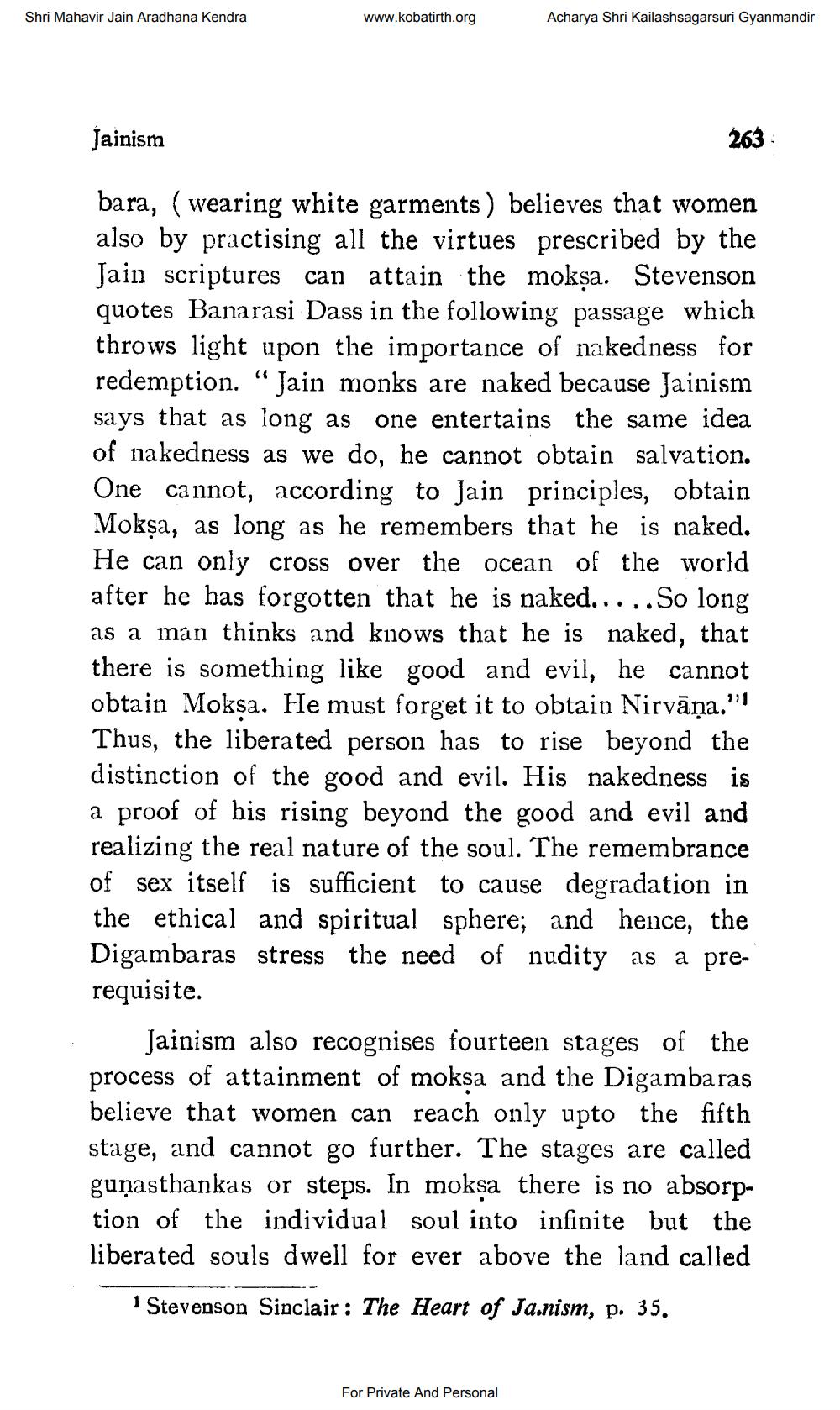________________
Shri Mahavir Jain Aradhana Kendra
www.kobatirth.org
Acharya Shri Kailashsagarsuri Gyanmandir
Jainism
bara, (wearing white garments) believes that women also by practising all the virtues prescribed by the Jain scriptures can attain the mokṣa. Stevenson quotes Banarasi Dass in the following passage which throws light upon the importance of nakedness for redemption. "Jain monks are naked because Jainism says that as long as one entertains the same idea of nakedness as we do, he cannot obtain salvation. One cannot, according to Jain principles, obtain Mokṣa, as long as he remembers that he is naked. He can only cross over the ocean of the world after he has forgotten that he is naked.....So long as a man thinks and knows that he is naked, that there is something like good and evil, he cannot obtain Moksa. He must forget it to obtain Nirvāṇa." Thus, the liberated person has to rise beyond the distinction of the good and evil. His nakedness is a proof of his rising beyond the good and evil and realizing the real nature of the soul. The remembrance of sex itself is sufficient to cause degradation in the ethical and spiritual sphere; and hence, the Digambaras stress the need of nudity as a prerequisite.
263
For Private And Personal
Jainism also recognises fourteen stages of the process of attainment of mokṣa and the Digambaras believe that women can reach only upto the fifth stage, and cannot go further. The stages are called guņasthankas or steps. In mokṣa there is no absorption of the individual soul into infinite but the liberated souls dwell for ever above the land called
1 Stevenson Sinclair: The Heart of Ja.nism, p. 35.




